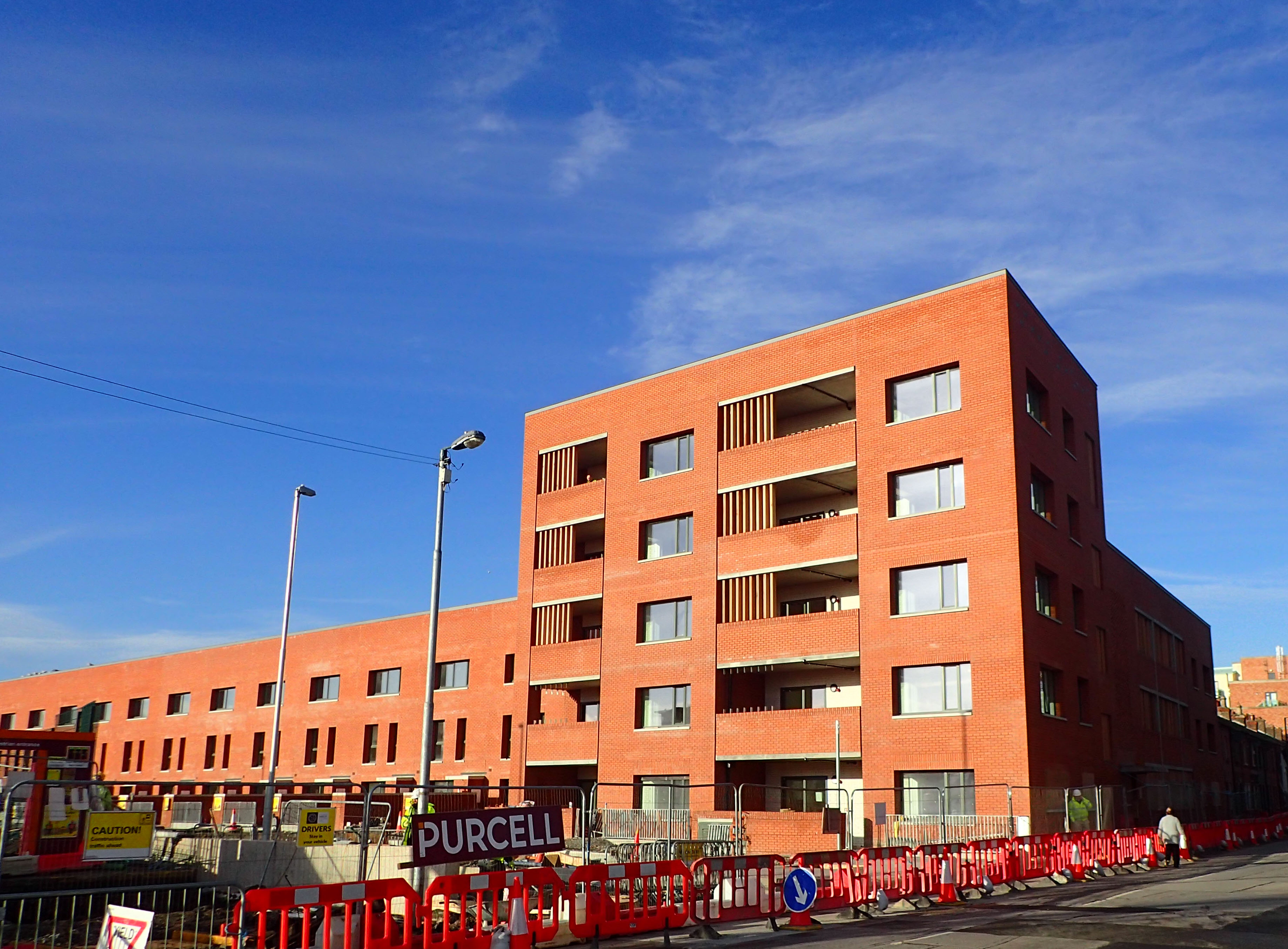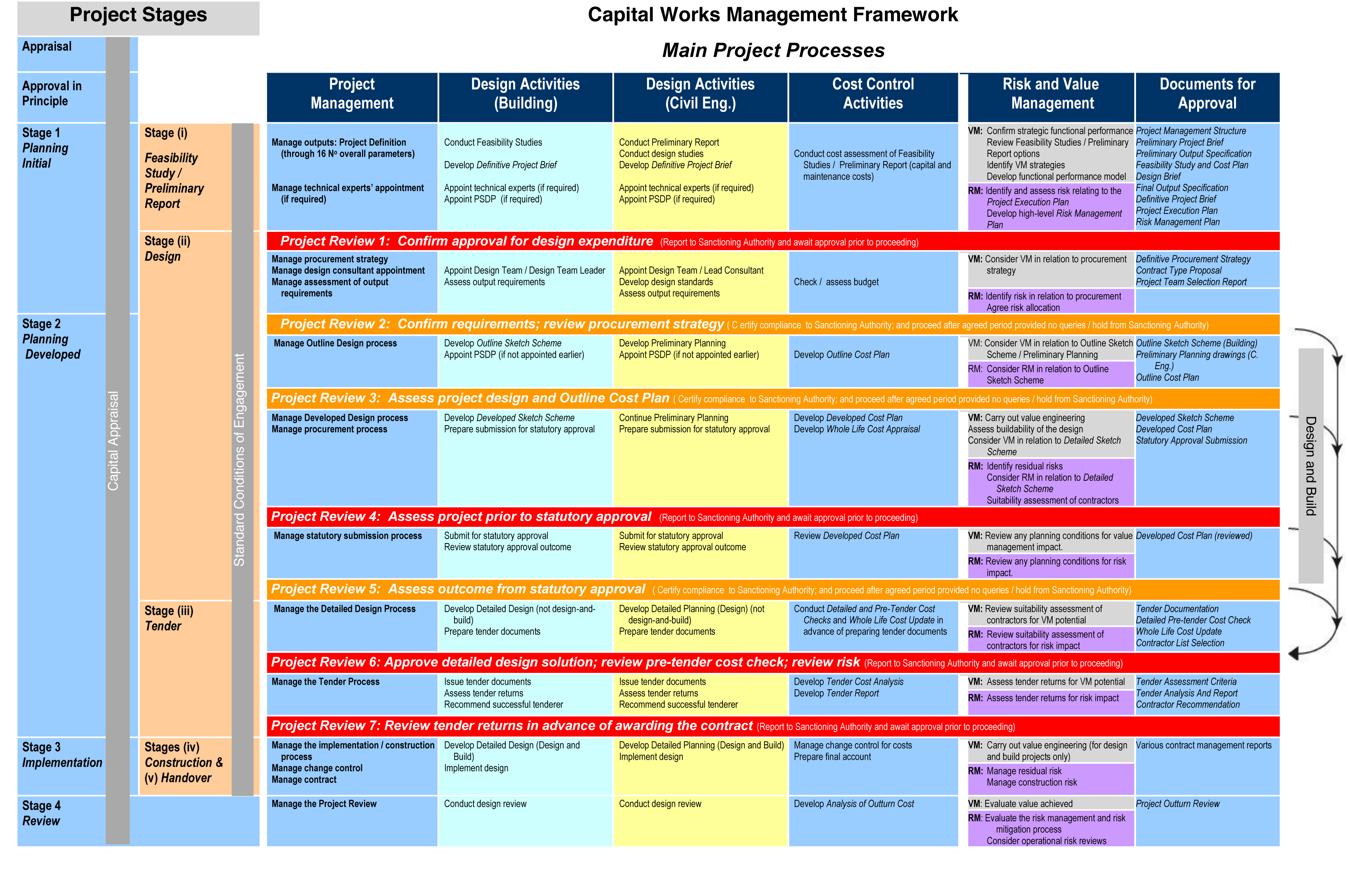In early 2020, we posted a series of blogs on City Architects project targets for the year. We’re going to reflect on these targets over the coming weeks and tell you what’s planned for 2021. As with last year, the posts will be organised by programme strand (links are to last year’s posts):
- Public housing using traditional building contracts
- Public housing using system build or modern methods of construction
- Public housing estate renewal programme
- DCC Area Office projects
- Public realm projects
- Civic projects (e.g. Libraries, galleries, fire stations, historic buildings and monuments and leisure centres)
- Large-scale regeneration projects
The purpose of this short post is to outline the key funding approval parameters and processes associated with City Architects work, which can govern or affect our project targets. Dublin City Council physical infrastructure projects are set out in its 3-Year Capital Programme, which captures planned expenditure on projects for the following three years. This programme is based on the availability of financial resources and is updated annually. City Architects is involved in many projects in the Capital Programme, and our involvement ranges from a limited advisory role to full Architectural services.
There is rarely a budget or a defined brief at feasibility study stage. The purpose of this study is to assist the Client Department in determining a site’s development potential generally in relation to a particular ‘wish-list’ of uses, define a budget and to decide on a development route. City Architects undertakes the study in-house, or procures a consultant architect from the DCC panel. Considerable time can elapse between preparing a feasibility study and a decision to proceed with a project. If the DCC Client Department decides to develop the site, the next step is to secure funding approval.
Funding comes from government grants and/or internal revenue. Projects funded by central government follow the Department of Public Expenditure and Reform’s Capital Works Management Framework (CWMF) process, which has four formal approval stages:
Stage 1: Approval to commission the design
Stage 2: Approval to submit the design for planning permission
Stage 3: Approval to seek construction tenders
Stage 4: Approval to award the construction contract
Non-housing projects go through an internal Dublin City council shortlisting process, managed by DCC’s Corporate Project Support Office (CPSO) before making a CWMF Stage 1 application to the relevant government department. Housing projects go directly to the Department of Housing Local Government and Heritage (DHLGH) for Stage 1 approval. City Architects undertakes further work required for the Stage 1 application. This will include site and utility surveys, brief, a revised feasibility study etc. Projects estimated to cost over €20m require a Cost Effectiveness Analysis (CEA) to accompany the stage 1 application. This approval enables City Architects to procure an architect-led integrated design team or to undertake architectural services in-house; appointing additional consultant design-team members as required.
The DCC client department manages interactions between DCC and government departments, particularly in relation to funding and programme. City Architects interacts directly with government department representatives in relation to design development and technical issues, and the level of interaction varies depending on the complexity and scale of the development. Where consultants design projects on DCC’s behalf, City Architects reviews the design development as the client representative, and co-ordinates the information required for further CWMF approval stages i.e. submission for Part 8, Tender, and the final award of the building contract and commencement on site. The length of time taken to secure further CWMF approval stages usually depends on the extent to which the developed design deviates from the Stage 1 approved budget.


